Tara Garnett is a researcher at the University of Oxford where she runs the Food Climate Research Network and its sister site Foodsource. Her work centres on the interactions among food, climate, health and broader sustainability issues. She has particular interests in livestock as an area where many of these converge, and in how knowledge is communicated to and interpreted by policy makers, civil society and industry, and in their different approaches to food problems and solutions.
Tara is also part of the LEAP project at Oxford, a Wellcome Trust-funded initiative focused on gaining a greater understanding of the health, environmental, social and economic effects of livestock production and consumption. In particular she works closely with Jamie Lorimer, Alex Sexton and Nathan Clay, on themes which explore the rise in alternatives to animal products, and transitions in the dairy sector. You can contact Tara on taragarnett@fcrn.org.uk.

The realisation struck me over a drink with a friend the other evening: when I mentioned I was trying to eat vegan-only food two days a week, this friend, a longstanding and committed environmental activist, made a sort of grimace. She looked disquieted, uncomfortable. That word, vegan. Somehow, for some environmentalists, vegan has become difficult, almost a dirty word.
In fact, even the way I just phrased the first sentence – ‘trying to eat vegan-only food’ rather than ‘be vegan’ – implies a certain distancing on my part too, a fear of the word’s newly enveloping negativity. As further demonstration (but also in the interests of full disclosure, since the particulars of one’s dietary habits seem now to need declaring – like a criminal record or a grant from Monsanto – I have neither) I should say that I’m not a vegan and never have been. I’ve been a lacto-ovo-vegetarian since I was seventeen. I don’t anticipate ‘becoming vegan’. I’m just trying to cut back on animal products – reasons later – and a 5:2 type approach seems manageable.
Of course, it’s not as if veganism has ever been value-free. From the time it became a dietary label – that is, since the Vegan Society’s foundation in the 1940s – people who choose to avoid using animal products have been variously portrayed as eccentric, extreme, effeminate, earnest, sexless, joyless, mirthless, militant, self-righteous ridiculous. They’re the butt of jokes of the sandals and weird sprouted food variety.
People love a good prejudice, and maybe the v of veganism doesn’t help – words beginning with v tend to come pre-loaded with moral judgement. Think virtuous, vicious, vibrant, violent, vivid, vehement, victorious, virulent, vigorous. Vacuous, villainous. Vegan. But whatever the stereotypes, the vegan’s ethical credentials never used to be in doubt. Recently though, something seems to have shifted; somehow veganism’s latest incarnation, as it were, appears troubling to a certain type of committed environmentalist. Why?
The rise in veganism, or at least in the hype, is a product of its time – a time of acute anxiety about what we put into our mouths. Of course, at one level this isn’t new at all. We’ve always been anxious and judgmental about what we and others eat; afraid too, of the judgement of others. But as we’ve learnt more about the links between food and the state of our planet, the old everyday religious, moral and cultural values and beliefs have been joined and heightened by new ones, both environmental and social, creating new dietary agonies, new goods and bads, new things, people and ideas to blame or extol.
And because knowledge and understanding rarely grow in an orderly fashion – they lurch one way and then another, senses of perspective are temporarily discarded, ideas cluster together, disintegrate and then reform in new configurations – during this process, knowledge and understanding can become simplified and skewed.
This, I think, is what’s happened in discussions about meat and animal products. There has been a lot of skewing and skewering of what and who’s to blame and what to eat or not eat, and this has led to some fairly simplistic messaging, which of course has changed over time. In fact, if I were to summarise these changes over the last 25 years as expressed in their most caricatured form, by that messy composite of academic writing, NGO advocacy and media (mis) representation, it would go something like this:
1. The problem is ruthless, unprincipled industrialised globalisation: food miles are the arteries of globalisation. The solutions? Local, seasonal and grow your own.
2. Food miles are stupid! As life cycle assessment, and its spin-off, the carbon footprint, shows. The problem’s not distance, but agriculture.
a. Specifically, livestock production.
3. Actually, the problem’s consumption – our diets – since we grow what we grow because we eat what we eat.
a. Specifically, the problem is meat eating because livestock generate loads of greenhouse emissions, meat clogs our arteries and animals suffer and die.
i. More specifically still, the problem is beef, because of all that methane and the rainforests and the saturated fat.
1. Even more specifically still, the problem is extensively reared beef because it produces more methane than animals in intensive, confined systems and they use more rainforest (Daily Mail-style mythbusting gotcha opportunity alert).
4. Since beef is the problem, we should switch to chicken: chicken and pork are better because they don’t produce methane, and they need less land and they’re healthier: ‘white’.
5. If the problem is beef because of the methane and the land then the problem is actually cattle, which means the problem is also dairy – so don’t eat dairy.
6. The problem is climate but not just climate; the problem is also biodiversity, the problem is land, the problem is animal suffering, the problem is heart attacks and obesity. Farm animals of all kinds are the problem. The solution is rewilding, the solution is veganism.
7. Actually, methane’s not the problem we thought it was; methane’s temporary, actually methane’s natural. The real concerns are with soil quality and soil carbon, the real problem is Cerrado-raping intensive monocultural arable farming. And mutilated tortured grain-eating chickens.
8. In fact, in thinking that methane’s the problem, you’re in denial about the devastation called by the fossil fuel industry, and global agribiz; you’re letting them off the hook, actually you’re in bed with the big bad guys.
9. If methane’s not the problem and it’s all about soil, then grassfed beef isn’t just not-bad, it can save the planet.
10. Grassfed beef is humans-as-part-of-the-rhythm-of-nature. Grassfed is holistic, grassfed is rural, grassfed is high welfare and ‘good fats’, grassfed is the family farming good guy, grassfed is the underdog. (Britain also does grass very well). Grassfed is good.
11. If methane’s not the problem and intensive arable production is the problem then actually the problems are meats whose production depends on intensive monoculture
a. Specifically the problems are chicken and pork and intensive beef (Daily Mail, gotcha back, eat your words!)
12. Actually wait, if the problems are soils and monocultures then the problems extend to all plant foods.
13. Vegans eat only plant foods. Therefore veganism is the problem.
14. Veganism is the vacuous entitled daughter of Big Food and Agribiz.
15. Veganism endorses industrialisation, intensive monocultures; vegans eat avocados and almonds grown by tortured bees (v. ironic, hah!); vegans chop up worms – those proletarians of our mother soil – with their evil ploughs, vegans are physically and spiritual divorced from the Living Soil. Vegans are actually The Problem.
Maybe I exaggerate. A little.
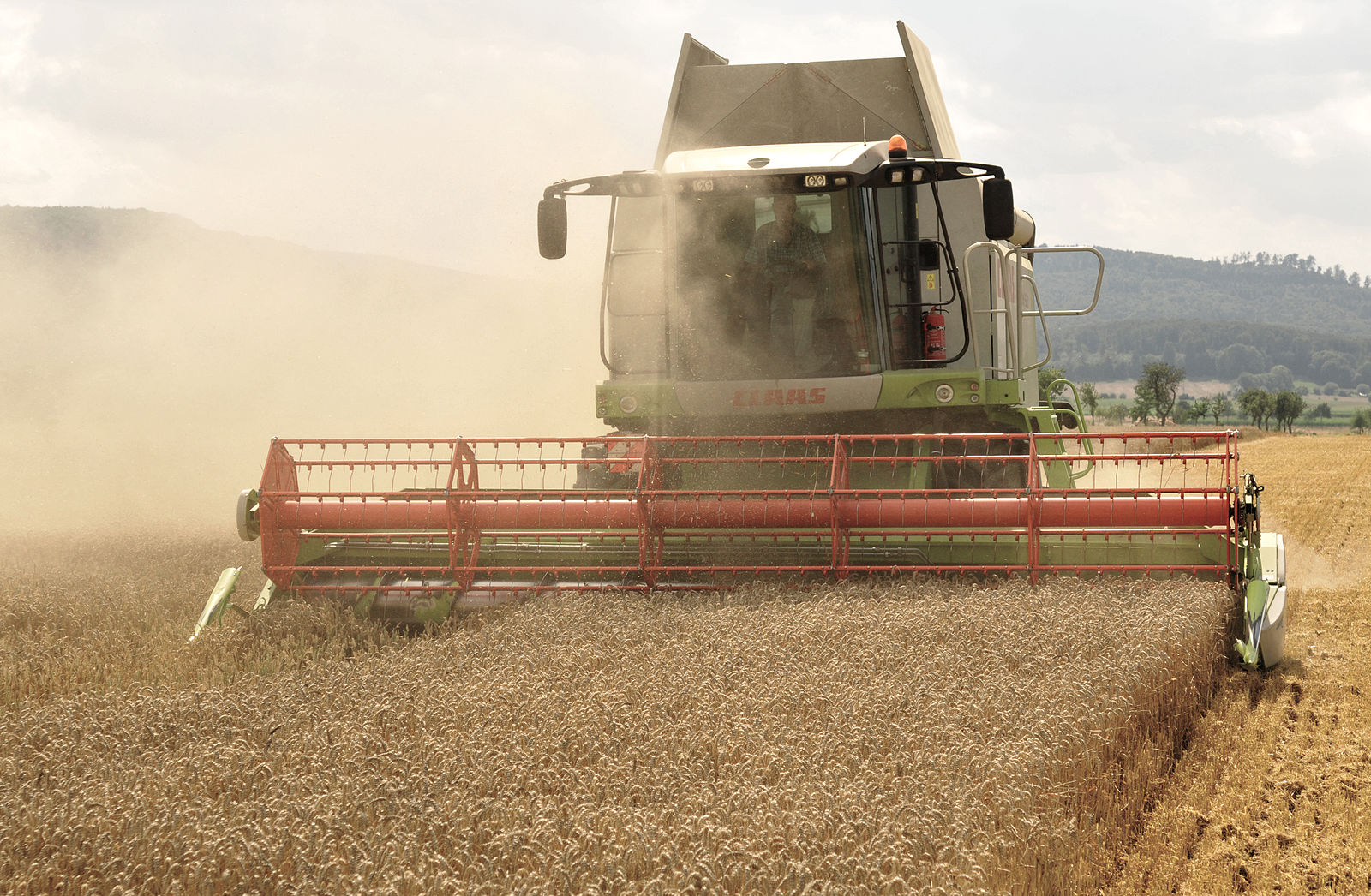
 Image: Michael Gäbler, The combine Claas Lexion 584 in the wheat harvest, Wikimedia Commons, Creative Commons Attribution-ShareAlike 3.0 Unported
Image: Michael Gäbler, The combine Claas Lexion 584 in the wheat harvest, Wikimedia Commons, Creative Commons Attribution-ShareAlike 3.0 Unported
Today’s veganism is new, it’s not quite like the old kind. For a start it’s almost entirely about what you eat rather than a broader wrap-around commitment to avoiding any use, and thereby exploitation, of animals. There isn’t much emphasis on, say, excluding leather, or silk or certain types of medication, because the motivation is less exclusively about animal rights and more about a bunch of other concerns and inclinations. The bag labelled ‘Why I Do This’ is baggier now, and contains items like the environment and health, as well as an amorphous entity that doesn’t quite have a name or even a solid shape but which suggests qualities of goodness, newness, desirability, fashionableness. Veganism new-style is having its moment in the sun – more specifically in the sun under an umbrella owned by a celebrity at a private beach resort somewhere very nice.
In part, it’s because it’s aspirational and in fashion that certain environmentalists are worried, or at least cautious. On the face of it this seems odd, because isn’t mainstreaming the goal? For change to have an impact, change needs to be mainstream. Niche-virtue won’t keep us within 1.5°C.
Maybe this is just a kind of grumpiness. Environmentalists quite like their underdog status. There’s a certain moral credibility that goes with pissing in the wind and when it starts to blow in your favour, well, that irks. Besides, some manifestations of the new veganism are just irritating: #greenconsciousness millennials who eco-emote while leaving all the lights on in the house and bouncing off to their weekends in Prague; zillion-ingredient Insta-Buddha-bowls, posted by smug #strongnotskinnybutstillquitestupid yoga bunnies on wellness retreats in Cambodia; vegan billionaires hopping from high level conference to high level conference to enthuse about the green light they’ve seen from the windows of their private jets.
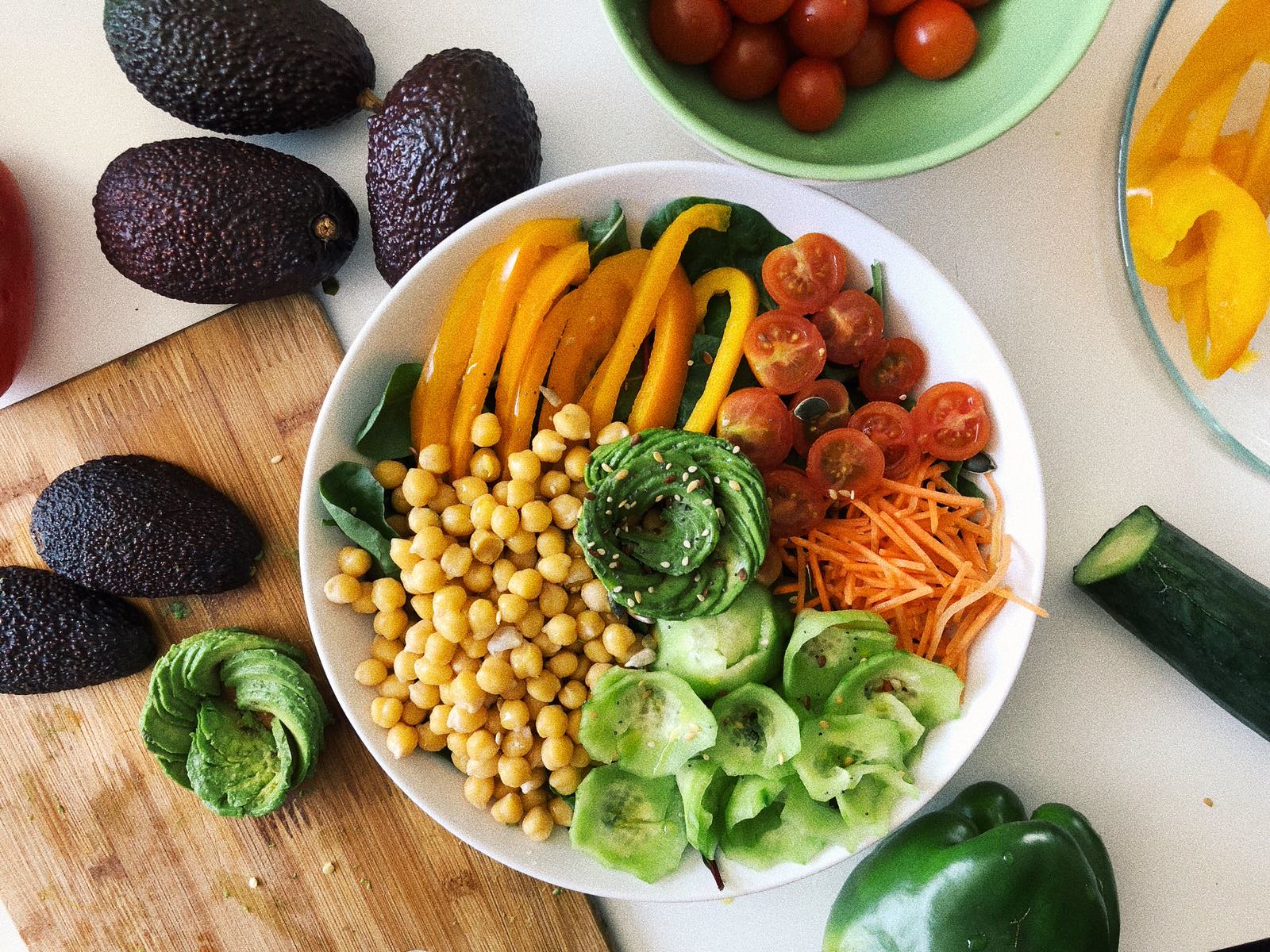
 Image: Mumumío, Receta de buddha bowl, Flickr, Creative Commons Attribution 2.0 Generic
Image: Mumumío, Receta de buddha bowl, Flickr, Creative Commons Attribution 2.0 Generic
But there’s more to it than this. There’s a concern about motive. To a slight extent, this is about the motives of the vegan food-eaters themselves. Back in the day when being vegan was difficult and boring, there was no elevator to the top of this particular summit of virtue; you had to walk. And so you had to really know why you were willing to put yourself through a lifetime of lentils, dehydrated soya chunks and mockery. Since it’s in fashion now, and the food industry has enthusiastically stepped up to the plate, it’s pretty easy, convenient and socially acceptable to eat ok-tasting, sometimes delicious, vegan food. What with vegan sausage rolls and all, you don’t actually need to care quite so much to be vegan today.
Maybe this shouldn’t matter because, well, should we really be trying to unzip people and peer into their chests to check they’re sufficiently pure of soul? Didn’t the Catholic Church try that? Which of us – including old school vegans – always, or even ever, does entirely and only the right thing for entirely and only the right reasons? Motives are murky. Besides, who cares, if the results – fewer animals born to die, less land being used, fewer greenhouse gases – are the same?
Of course, one answer is that if there’s no real connection between motive and action then things can backfire. If veganism is in fashion and if fashion is, by definition, transient, then what goes up comes down. It’s a risky strategy to pin one’s planetary hopes on the flimsy hemline of the latest catwalk offering.
But the larger concern, the real concern for some environmentalists, isn’t so much about the people who eat vegan food, but the people who sell it to us, and their motives. The shelves are now bursting with vegan offerings, to be sure, but the production systems, the power structures, the delivery mechanisms look pretty similar to the foods they sit next to. They’re there to fulfil consumer demand, and in so doing “to grow the business” which in almost all cases goes hand in hand with “to grow the environmental crisis”. The goal is still to think in terms of ‘demand’ as a thing-to-be-fulfilled, fostered actually, rather than challenged. How, one might ask, is a chilled single-serve almond café latte – with its reliance on pesticides and irrigation water for the almonds, its mixed materials Tetra Pak packaging, its energy-using refrigeration dependence, its long supply chains dedicated to carrying more-or-less water around, its presence on the shelf a tiny death-blow to any skills you might once have had because, actually, you could’ve made this yourself at home – how is this vapidly virtuous drink really going to do the job, existentially speaking?
The new veganism, from the perspective of those who don’t buy into the techno-optimist eco-modernist agenda, looks pretty much identical to the Old Greenwash. Nothing much has changed. And it’s not just that the vegan lattes and vegan sausage rolls aren’t necessarily better for the environment, it’s worse than that, the worse being, that the problem is still defined as one whose solution lies in shopping. Salvation by consumption.
So, the concern is with motive, and with the dumping of the task of saving the planet into your supermarket trolley, and mine. There’s a third concern too, this one with substance, with, quite literally, the matter from which these new products are composed. The new veganism is all about simulacra – mylk, sheeze, not-dogs, facon – which slot conveniently into current dietary norms. These are replications made of multiple and unfamiliar ingredients (methylcellulose…?) extracted from the commodity crops that environmentalists abhor; manufactured using technically sophisticated industrial processes; and fortified with minerals and vitamins in order to match the nutritional profiles of their animal-prototypes.
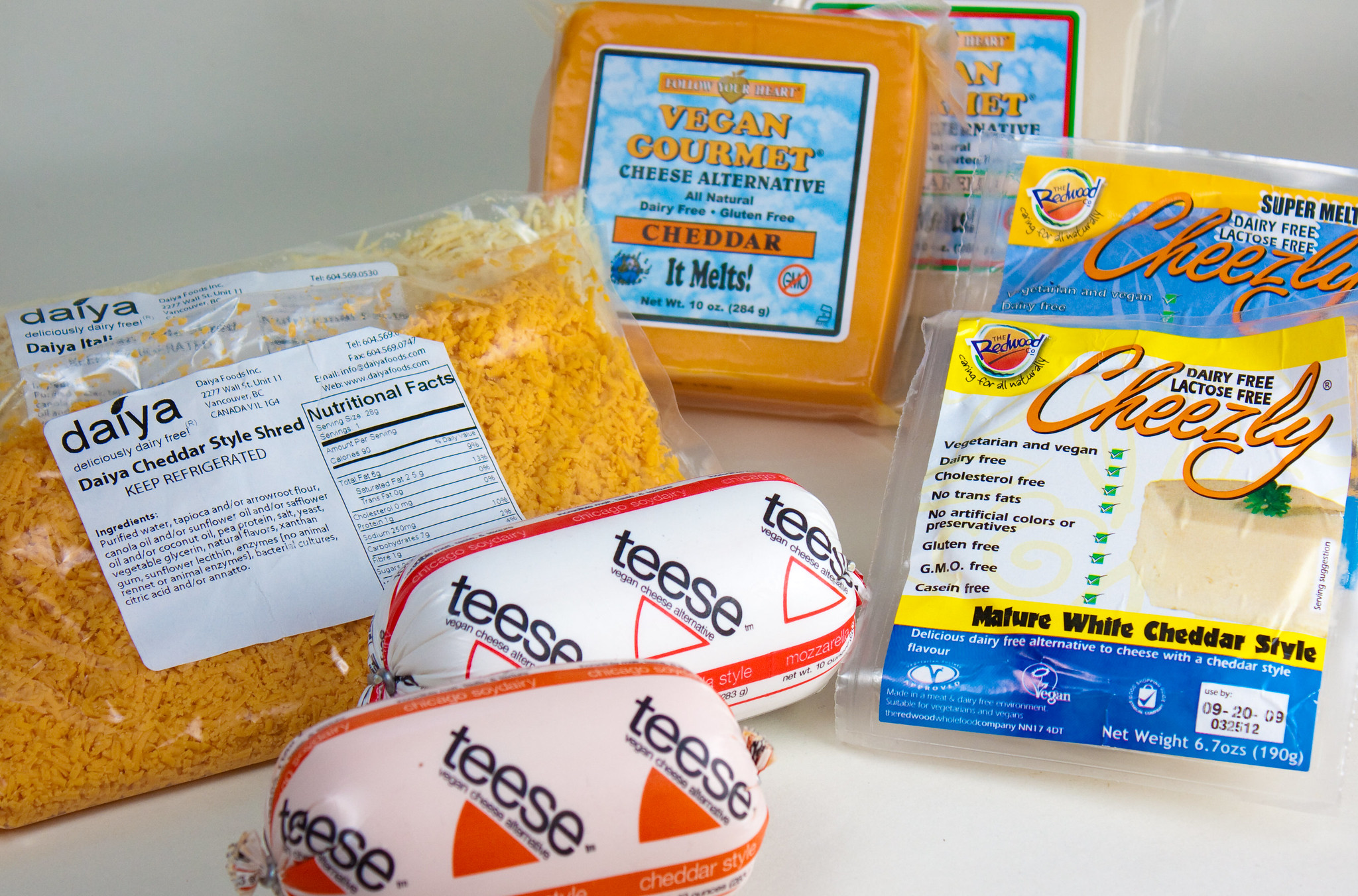
 Image: Veganbaking.net, Vegan cheese review, Flickr, Creative Commons Attribution-ShareAlike 2.0 Generic
Image: Veganbaking.net, Vegan cheese review, Flickr, Creative Commons Attribution-ShareAlike 2.0 Generic
All this, in the eyes of many environmentalists, is just unnatural, wrong. These are fake foods, their only authenticity to found in the fact that they materially embody the problem at the heart of our problems – humanity’s alienation from nature. The solution is actually the problem.
Much of me sympathises with this way of thinking. It comes ‘naturally’ to me, so to speak. But there’s a lot of confusion and inconsistency bound up in all this, which makes it difficult to know what everyone is actually talking about or arguing for – and it makes for combative, unconstructive debate.
Perhaps the most obvious, and simplest of the confusions, is the false equation here between all the above, and veganism. While many of the concerns that environmentalists express intersect with the way that vegan products are being produced and pushed today, they’re not actually synonymous with veganism itself. You can still get your pressure cooker out and boil some chickpeas; that’s veganism too. And it would be wrong to suggest that the old ‘ethical’ animal rights motivated veganism has died; on the contrary, it has evolved further, making connections with broader concerns around power, oppression and injustice beyond the boundaries of human-nonhuman relations.
And it’s also important to look past the hype and get all this into perspective. Most people in Britain today are not vegan, not even close. Cheese, ham and chicken remain top of the Great British Sandwich list. Meat consumption in this country is not just high but remains fairly constant; globally, all the signs are that people will be eating more meat, with the Food and Agriculture Organisation forecasting a 15% growth between now and 2027 alone. Reports of the death of the death of animals are, as they say, greatly exaggerated.
This needs remembering. Because whatever your concerns, they shouldn’t obscure the fact that there are many reasons to be eating fewer animal products – planet-sized reasons. We cannot meet our climate commitments, and we cannot halt the steady annihilation of other life forms if we carry on eating animals in the quantities that current trends suggest. This stands true whatever animal type or whatever production system you propose. For sure, some animals or systems are better in some or most respects than others; but any one of them scaled up to the level of current or future projected consumption levels will be devastating. There isn’t a single environmental problem that I can think of that wouldn’t be improved by there being fewer farmed animals overall.
Of course current systems of crop production generate their own very major problems – which need to be tackled. There’s no such thing as a free lunch, environmentally speaking, especially the all you can eat kind that continues to push more over better. And if you want to farm without chemical inputs then veganism certainly presents challenges; in organic systems, animals – in the form of manure, blood and bone meal – are the go-to providers of soil fertility. That said, there are vegan organic growers out there innovating and experimenting ingeniously if penuriously, and of course the point is also often made that organic farming isn’t necessarily the goal, but at the moment it’s not clear what a scaled up sustainable vegan agriculture looks like. The research (and the funding for the research) isn’t there. Besides, it’s not clear what a sustainable agriculture that includes animals at today’s levels look like, let alone tomorrow’s. To argue for fewer animals doesn’t (unless one is an abolitionist) mean none at all, criticism doesn’t mean rejection, and I can’t imagine that any ‘solution’ will be simple or single.
I think the biggest threat we face is binary thinking, the unhelpful black-white polarisation of current debates around food, the throwing out of babies, however they’ve been fed, with the bathwater. Vegan versus omnivore. Chicken versus beef. Organic versus industrial. Pasture-fed versus ultraprocessed fake-burger. Arable versus grass. Cain versus Abel. If you’re not for me, you’re against me. Four legs good, two legs bad; four legs bad, no legs better.
I don’t know what the alternative to capitalism, or consumerism is; which is not the same as saying ‘there is no alternative’, nor that our taken-for-granteds shouldn’t be interrogated. As for the naturalness, well, I’m not sure what that is. And I’m not sure that we really do want naturalness, at least not in its entirety. Most of us want to keep bits of fake, if we can. Fake sex, for example, i.e. the kind that doesn’t do what it ought naturally to do, and produce babies: the kind mediated by modern contraception. Fake life, the kind that’s propped up by modern medicine.
We have to decide which bits of naturalness – and of today in general – we want and which bits we don’t and the difficulty here is that it’s different for different people. One person’s nirvana might be something that looks pretty much like today, but catch-free: a carbon-free, calorie-free, animal-free all-you-can-eat buffet in the world’s shiniest shopping mall. Maybe that’s possible – humans have a knack of pulling techno-rabbits out of hats – but if it is, for many environmentalists, me included, that’s a description of hell. The arguments aren’t really about carbon, or water, or biodiversity, or bodily health; they’re about my idea of fun versus yours. The fear of many environmentalists isn’t really that we can’t have it all, environmentally and materially speaking; but that we can. Perhaps this is what we should be talking about.
So. I am sticking to my 5:2 veganism, in full knowledge that this is a totally inadequate response to a poorly defined problem, acknowledging my biases, extremely confused, but hoping for a bit more balance and honesty in our discussions about food.
We're keen to hear your thoughts and comments. To join the conversation, either send a message to the FCRN's Google Group (join here) or use the comments form below.


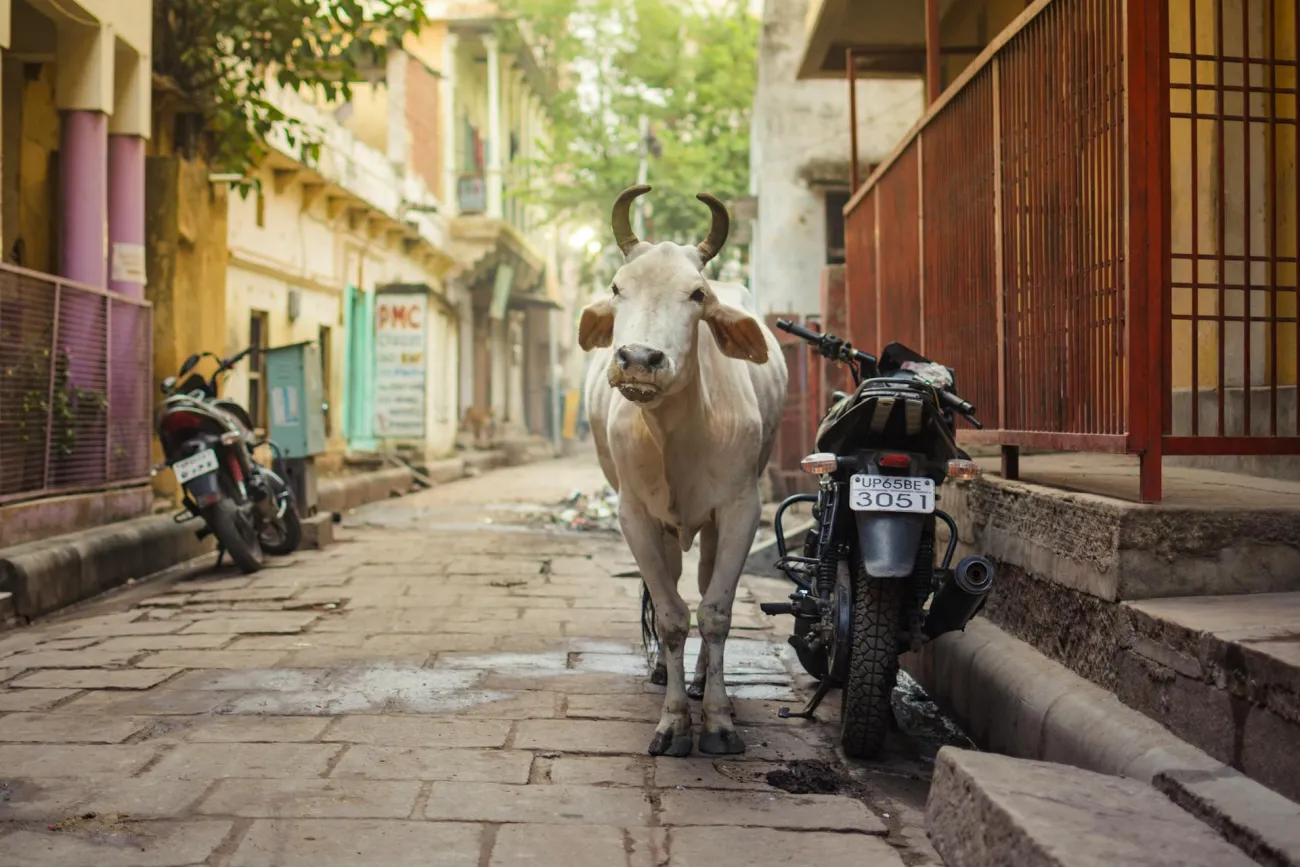
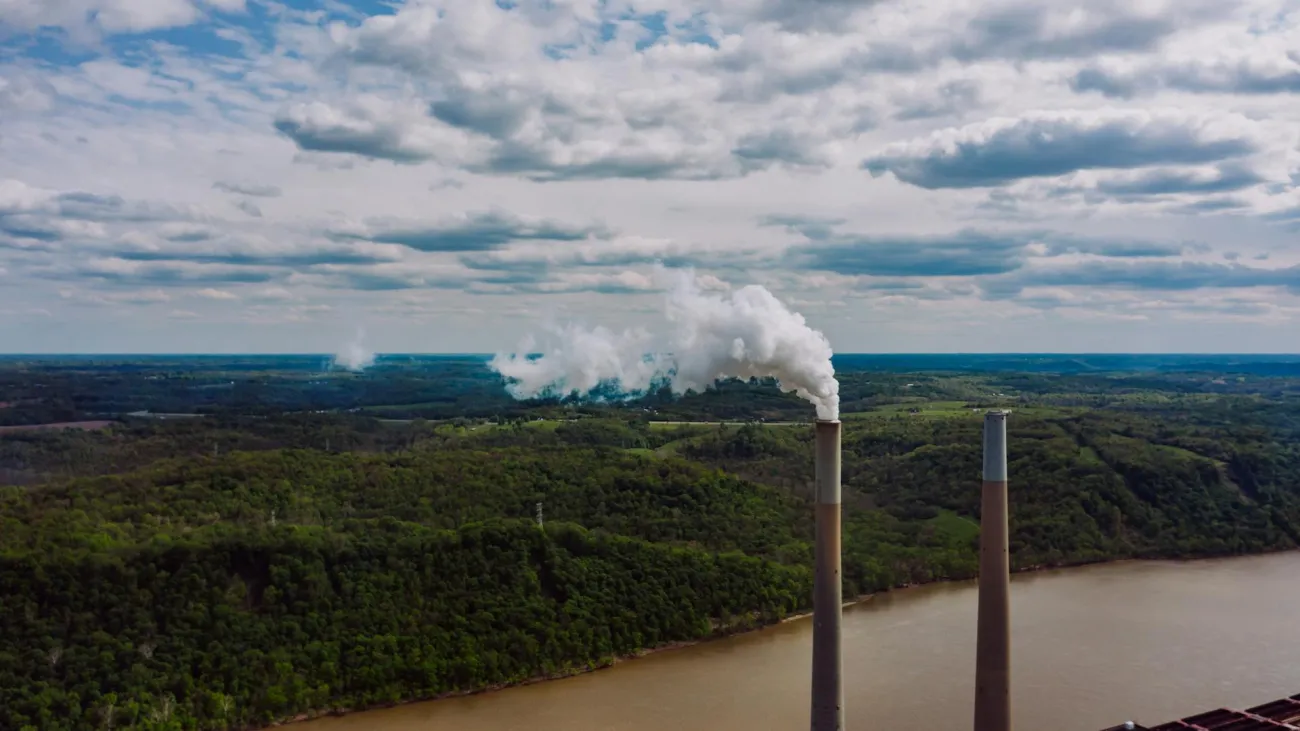
Comments (0)